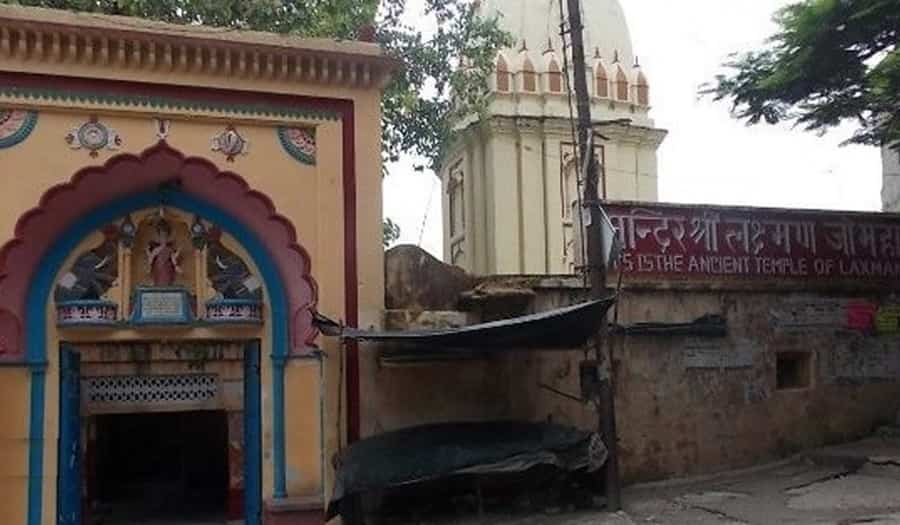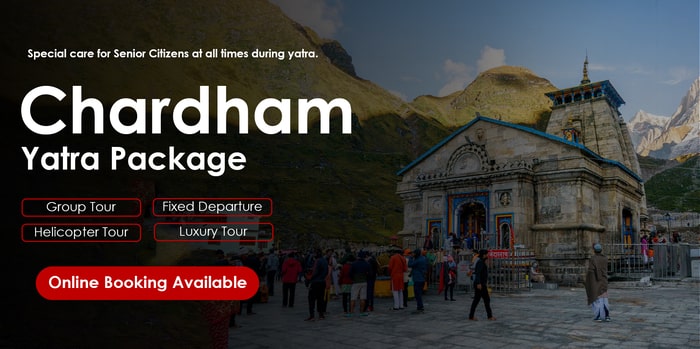Last Updated on April 27, 2024
Lakshman Temple is a Hindu temple on the banks of the Ganga River at Rishikesh, Uttarakhand. The scores of pilgrims use Lakshman Jhula as a ropeway to reach Lakshman Temple. It is dedicated to Lord Ram’s younger brother Lakshman. Lakshman performed penance on this site.
Tapovan is a religious hub on the banks of river Ganga where Lakshman Jhula and Lakshman temple stand today. Lakshman Jhula is 450 feet long hanging bridge at the height of 70 feet and a distance of 4 kilometers from Rishikesh.
On one end of the Lakshman Jhula, Tera Manzil is a 13-story temple with carved sculptures of Gods and Goddesses. Wonderful picturesque surroundings give tourists an otherworldly experience. The old route to Badrinath and Kedarnath lies along the bridge.
Hundreds of temples are dedicated to Lord Ram, Lakshman temples are rare to find. Lakshman idol is in the standing posture. Hanuman’s orange color stone relief, the marble idols of Hanuman, the wooden relief images of Narad, Badri, and Lakshmi, and the idol of Swami Narayanji are other deities in this temple. Thousands of visitors come to surrounding ashrams.
- Timings: 05:00 am to 09:00 pm
- Ticket Pricing: Free Entry

Mythology and Legends
Abode of Gods, Rishikesh, is one of the most ancient pilgrimage sites of India. Its history is inconceivable without referencing the Lakshman Temple. Various mythological and legendary stories mark in the historical backdrop of this town.
You will see a beautiful chariot sculpture near Lakshman temple when crossing the Lakshman Jhula.
Several legends are associated with the origin of this mythical bridge. You will see a divine Lakshman idol installed inside the sanctum of Lakshman Temple at Rishikesh. As per the legend, Lakshman crossed the river Ganga on a bridge built with jute ropes.
Lakshman Jhula and Temple stand at that same site. The Lakshman Jhula, made of jute ropes, collapsed in October 1924 in a deluge. Lakshman Juhla was rebuilt with iron and steel during the 1930s and opened to the masses in 1939.
Another folklore goes that Lakshman attained spiritual enlightenment after meditating at this temple. Lord Rama and Lakshman erected a twig bridge to cross the Ganga River to the Himalayas.
As legend has it that Rishi Kund is a bathing square where Rama and Lakshman bathed to wash away their sins after killing the demon king Ravana. Rishi Kund means ‘Pond of the Sage.’ The Goddess Yamuna blessed a sage Kubz and promised to stay in Rishikesh forever.
Architecture
Splendor in design and structured figures, just as wall paintings, are the main features of the architecture. These decorative wall engravings, designs, and ancient sculptures are typical to antiquated time. You will get beautiful views of the Rishikesh valley and Ganga.
Festivals
The following festivals are celebrated at Lakshman Temple:
Dussehra: To commemorate the victory of good over evil, People celebrate Dussehra on the precincts of Lakshman Temple. Lord Ram slew Ravana to bring about peace and prosperity. Devotees set ablaze an effigy of Ravana.
Diwali: Diwali is celebrated with arrays of lights and earthen lamps to celebrate Ram and Lakshman’s return to Ayodhya after defeating Ravana.
How to Reach
- An auto-rickshaw or sharing auto : You can catch an auto-rickshaw to reach Lakshman Temple from the Rishikesh Bus stand or railway station (6 kilometers).
- Taxi: Hire a taxi from Jolly Grant Airport, Dehradun (23 Km), to reach Lakshman Temple.
Things to Do
River Rafting: The starting point of the popular sport activity is close to the Lakshman Temple. You can enjoy it immensely. River rafting is a thrilling sport synonymous with Rishikesh.
An experienced coach guides your rafting trip. Rivers originate from the high altitude Himalayan glaciers and meanders through serene jungles around the hillocks. Waves hit your raft and overwhelm you.
Shopping: On local markets around Lakshmana Jhula, you can buy Rudraksha mala, religious idols, books, and incense sticks. Gems, handicraft items, precious and semi-precious jewelry are other items to purchase as a souvenir. Market, shops, and restaurants surround the temple.
Food: Halwa, Lassi, and Jalebi are the sugary delights in the area. Choti wala restaurant is famous for its delicious meals.
Yoga and Ayurveda: You can enroll in a Yoga retreat, 100 hours, 200 hours, 300 hours, and 500 hours Yoga Teacher Training Courses in Rishikesh. Rishikesh is the world capital of Yoga for mental and spiritual wellbeing.
Temples: You can visit Trayambakeshwar Temple, Sri Raghunathji Temple, and Sachha Akhileswar Mahadev Temple around Lakshman Temple.
Trimbakeshwar Temple (Tera Manzil Mandir): Lord Shiva is the apex deity with Shiv Ling at the top on the 13th floor. The temple has been named after the patron deity- Trimbakeshwar or the Three-eyed Lord. In the 8th and 9th centuries, Adi Shankaracharya set up the temple.
Other temples in the building are dedicated to various Gods and Goddesses like Durga, Saraswati, Hanuman, Vishnu, Ram.
- Timings: From 06:00 am to 07:00 pm
Shri Saccha Akhileshwar Mahadev Temple: You can walk to the temple in 2 minutes from Lakshman Temple. It is located at Lakshman Chowk on the way to Lakshman Jhula. Shiva linga is huge, and you can perform Pooja here. You can perform milk Abhishek
- Timings: 05:00 am – 07:00 pm
Sri Raghunath Ji Maharaj Temple: This is another temple to visit around Lakshman Temple.
Address
Lakshman Temple, Tapovan, Rishikesh, Uttarakhand, India
FAQs
Q-1: What makes Laxman Jhula famous?
Ans: As per mythology, Lord Lakshman crossed the river Ganga at the site where the bridge stands majestically.
Q-2: What is the distance between Lakshman Jhula and Lakshman temple?
Ans: The Lakshman Jhula is 250 meters away from Lakshman Temple. …
Q-3: Which is the nearest airport to reach Lakshman Temple?
Ans: Jolly Grant Airport at Dehradun is 23 kilometers from Lakshman Temple. …
Q-4: Where are Ram Jhula and Lakshman Jhula?
Ans: Lakshman Jhula is a bridge for pedestrians and two-wheelers in Rishikesh. Ram Jhula is a more massive bridge of 2 kilometers downstream from Lakshman Jhula. Both these bridges are the landmark of Rishikesh. …
Q-5: What makes Rishikesh famous?
Ans: Rishikesh is famous for Yoga and Ashrams and is regarded as a Yoga Capital of the world. Rishikesh hosts a one-week-long international Yoga festival during March every year. Rishikesh is a name of Vishnu, the lord of the senses, in Sanskrit.




 Call
Call WhatsApp
WhatsApp Enquiry
Enquiry